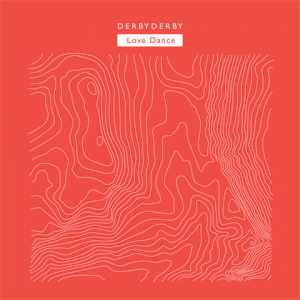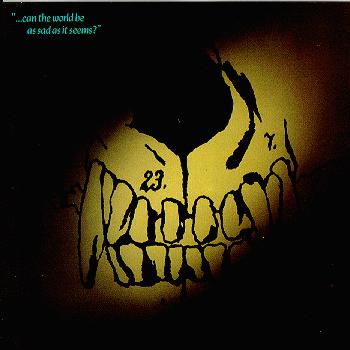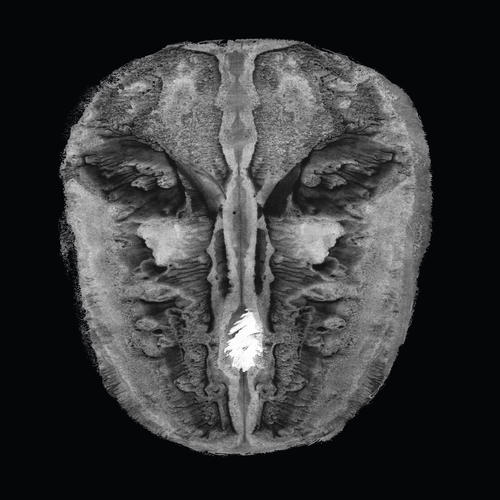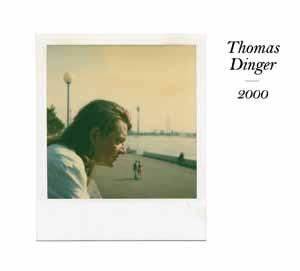 Derby Derby is a French three-piece consisting of bass, drums and electrified trumpet. For them, the perfection of a monotonous drone is their goal, the sort that takes you away, transcending the ordinary and allowing you to slip into that mantra-like mindset where the slightest variation or the minutest change of detail become enormous.
Derby Derby is a French three-piece consisting of bass, drums and electrified trumpet. For them, the perfection of a monotonous drone is their goal, the sort that takes you away, transcending the ordinary and allowing you to slip into that mantra-like mindset where the slightest variation or the minutest change of detail become enormous.
This release is an half-hour piece, essentially divided into two. The first section is a slow, thought-provoking dirge and takes up about twenty minutes; it then morphs into something a little more frenetic, almost dance-oriented, hence the title Love Dance.
It starts with the drone and what a drone it is. It feels akin to walking alongside a liner that’s testing a foghorn. I guess due to it being generated by a trumpet, there is imperfection; it is the subtle wavering and the feeling that the sound is somehow being affected by atmosphere or pressure that draws the listener’s ear in. Drums kick in after a minute or two, slow, heavy, earthy, like stirring concrete or magma. After four minutes the bass arrives and meshes with the drums to create a sludge-y pattern against which the trumpet drone is pasted like a pale Rothko sky. It is interesting how the ear becomes attuned and then is drawn to the slight variations: after five minutes the tone of the trumpet changes slightly; cymbals are subtly introduced after six, but have a massive effect going forward changing the texture; at eight there is a touch of feedback and a shift in pitch which then happens here and there. I am reminded of listening to the old San Diego band Physics in the way that the songs change gradually and there is so much space, it allows you to inhabit those areas, and as things change, even subtly, it is like a seismic shift. The bass and drums drop out at nineteen minutes, and you realise that the trumpet sounds like pipes and the whole thing has so gradually changed, yet it is imperceptible.After a stint of trumpet only, the beat starts again but speeded up, the bass being much quicker and insistent in its single-note adherence. However, the drums follow the same pattern as before, allowing the bass to maintain the pressure. Here the mood is angrier and the trumpet is starting to feed back, gnawing and sawing, scouring the atmosphere with hornet-like intensity. The vagaries of tone and the inclusion of murky feedback do generate a darker mood, but it is the yang to the opening element’s yin and herein lies the appeal. The simplest of ideas have created a masterpiece of mood and there are similarities here to the ideas on a Dawn Of Midi album, but less jazz oriented. Incredibly simple yet incredibly effective.
-Mr Olivetti-



